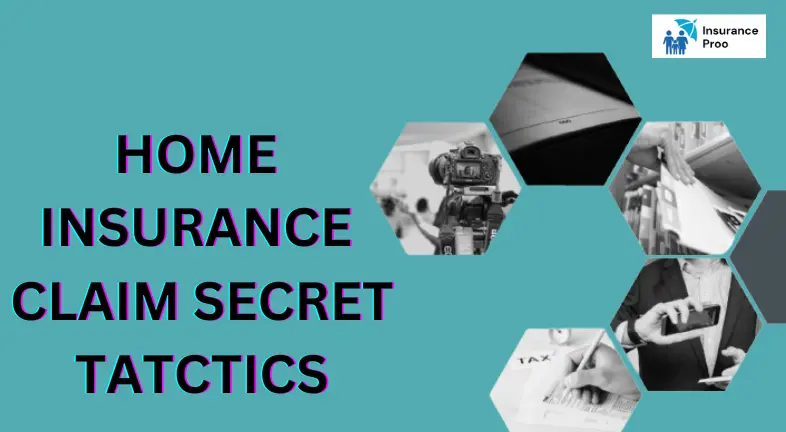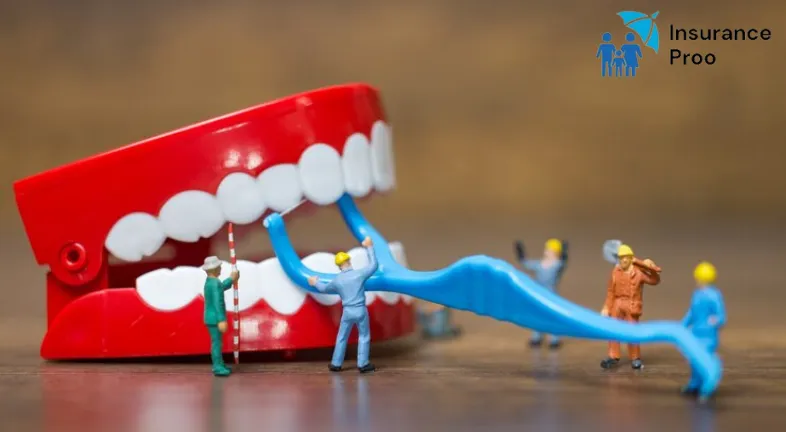Home Insurance Claim Adjuster Secret Tactics

The experts that look into and assess claims on behalf of insurance companies are known as insurance adjusters. They are in charge of figuring out how much money a policyholder is eligible to get. On the other hand, some adjusters employ unseen strategies to reduce settlement amounts, understate damages, and make needless documentation requests. For homeowners who are already coping with the fallout after a terrible tragedy, these strategies may be frustrating.
To make sure they get just compensation, homeowners should retain written correspondence, record damages, and think about working with a public adjustor.
The usual secret strategies used by home insurance claim adjusters should be known by every homeowner. Because they are for-profit businesses, insurance firms are more concerned with making money than with serving their clients.
Despite being utterly unjust, these strategies are ignored since house insurance claimants are so needy. Regretfully, research indicates that these strategies contribute to the annual revenue growth of insurance firms.
You can prevent manipulation and obtain the highest settlement for your house insurance claim by learning about these typical home insurance claim adjuster insider tricks.
HERE ARE SOME OF THE HOME INSURANCE CLAIM SECRET TATCTICS:

Despite being utterly unjust, these strategies are ignored since house insurance claimants are so needy. Regretfully, research indicates that these strategies contribute to the annual revenue growth of insurance firms.
1. Secret Tactic: Convincing You to Admit Error
Insurance firms attempt to con claimants into acknowledging fault across the board. However, if you acknowledge some or all of the fault, your claim may be considerably diminished.
A popular covert strategy in property damage lawsuits is to assert either of the following:
- either failed to lessen the harm or
- the harm happened long before or after the disaster
For instance, they may claim that your appliances were harmed long before a fire broke out or that you failed to secure your windows, which resulted in flooding during a storm. If you’re not aware of these strategies, it’s simple to fall for a con to confess guilt. Something as simple as asking, “Were your windows locked?” might cause it to happen so quickly.
In rare circumstances, you may even be the victim of “gas lighting” This is where they will deceive you into believing that you were the reason. We are aware that it can be challenging to be in a precarious situation. Adjusters for insurance claims employ deceptive questioning to assign blame. Refuse to give in readily. You are not friends with them.
Do you know about it? How to Get Home Insurance With a Bad Roof
2. Secret Strategy : Postponement
It’s likely that your insurance claims adjuster may attempt to delay actions. They will be aware from past experience that when individuals are in dire need of money and repairs, most of them grow weary of waiting around.
They’ll do everything they can to pressure you into taking a low-ball offer, including not returning your calls or responding to your emails. Refuse to give in. Should you come across delaying tactics, you might contact a property damage attorney since you are a victim of bad faith.
3. Secret Strategy : Making Up Deadlines
Insurance brokers will inform you that you have until a certain date to accept the offer or walk away empty-handed in an attempt to persuade you to accept a low-ball settlement offer. In actuality, this is a fear strategy. You are under no obligation to meet this arbitrary deadline. Actually, you are not required to accept their low-ball offer before a deadline and you always have the option to negotiate a superior settlement offer. If you find yourself in this situation and are afraid, you can speak with a property damage lawyer, who will promptly get in touch with the insurance provider to clarify the situation.
4. Secret strategy : Policy Vulnerabilities
The paperwork for insurance policies is typically lengthy and intricate. That’s deliberate. Many of our clients report that their insurers have informed them that the insurance coverage does not extend to property damage. The usual explanation is a technological flaw. Generally speaking, this is untrue. You paid for this policy because you are their client.
5. Secret Strategy No. : Asking for Superfluous Documentation
Documents include invoices, photocopies of proof, reports, and receipts are needed by insurance adjusters. However, a common ploy used by insurance adjusters is to request unnecessary paperwork knowing full well that you are missing them. For instance, you might be required to present a building or repair invoice from ten years prior to the occurrence of the property damage. This is merely another ruse to get you give in to a lowball settlement offer.
6. Secret Strategy : Undervaluing Your Allegation
It’s unlikely that a low-ball offer you receive is the result of overestimating your damages. It’s more probable due to the fact that insurance adjusters try to exhaust you rather than give you a higher settlement. The most frequent way this happens is when someone says repairs can be done for a lot less money than they actually cost.
Refuse to give in. You can obtain contractor estimates and an impartial property inspection if you’re not content with the settlement offer. These can be used to demonstrate that the claim was not valued or paid for in full. In these cases, property damage attorneys are very helpful. To ensure you don’t run out of money, they have the means to demonstrate the true price of the damage.
7. Secret Strategy : Telling You Not to Hire a Lawyer
Insurance firms fear lawyers because they believe they will expose their strategies as acts of bad faith. It’s possible for your insurance agent to attempt and convince you that it’s a waste of money, a contract breach, or not necessary to hire an attorney. All of this is untrue. Even after removing attorney fees, hiring legal counsel nearly always results in a larger settlement.
8. Secret Strategy : Pretending to Be Concerned
Any extremely amiable insurance adjuster should be avoided. They work for an insurance business; they are not your friends. Respect and sympathy are always appreciated, but when someone tries to “befriend” you, that’s when things get suspicious. They employ this strategy to lower your defenses so they can utilize information against you. Adjusters frequently receive bonuses for small settlements; you’re just another chance.
9. Secret Tactic : Insurance Companies' False Promise
An adjuster handling your home insurance claims may make claims-related commitments that are actually in your best interest. The insurance company is always their top priority—not you! For instance, they can promise to pay for a specific kind of repair work, but then claim it was “excessive” and won’t be paid.
10. Secret Tactic No. Painful Compensation Negotiations
Never forget that you have the option to haggle over a settlement offer for property damage with an insurance provider. But be advised that they will make it as challenging as they can. They won’t merely grant your request for the desired figure on the spot or after that. It will require some effort, perseverance, and bravery.
CONCLUSION

In order to safeguard their houses against potential hazards like fire, theft, and natural catastrophes, homeowners buy insurance policies. However, because of the strategies employed by insurance adjusters, consumers could not receive the full amount of compensation when an accident occurs and they make a claim. These strategies are frequently covert, so homeowners might not even be aware that they are being employed against them.
Insurance adjusters may employ covert methods to prevent homeowners from getting the full amount of compensation they are entitled to.
To reduce payouts, insurance adjusters employ strategies including underestimating damages and seeking pointless documentation.











